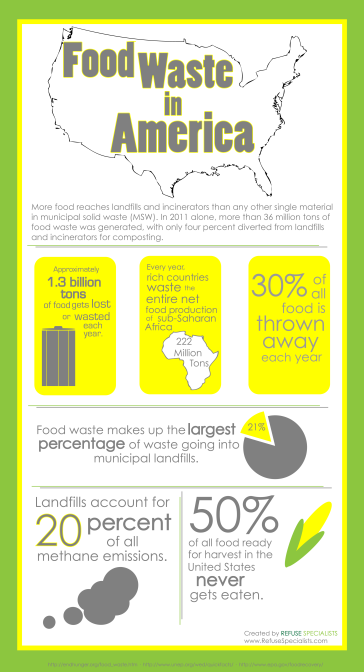Recently, the New York City Council passed groundbreaking legislation requiring commercial food scraps from the largest food service establishments to be recycled. This new “Commercial Organic Waste” policy is continuing the effort already established by surrounding states such as Vermont, and Connecticut, as well as cities such as San Francisco, Austin, Seattle, and Portland. This new law will help NY divert more waste away from landfills, and contribute to a greener earth. 
This law joins NY with 30 schools in Charleston County, who are participating in a food-composting program. The thirty schools in the food waste-composting program include 27 elementary schools, and 3 middle schools. This program began in 2012 and has grown dramatically in nearly two years, resulting in 72 tons of food waste collected only in the first year of the program with 11 schools. That is 72 tons of food that did not end up in a landfill due to the installation of this program. Can you imagine how much waste would be diverted away from landfills if every school participated in this program?
For those who don’t know, composting is the biological process of breaking up organic waste, such as kitchen waste, manure, leaves, grass trimmings, etc. Composting can be used for many different types of waste, including food waste, which is more extensive than composting other materials, because food waste compost must have the right blend of materials.
Food waste compost must be segregated into different containers for different types of food, such as green materials, wet materials, meats, etc. Each type of material needs a different type of compost method, for instances meat is harder to compost than fruits and vegetables, especially if the animal eats other meats.
Food waste recycling for compost will require an extra step in cafeteria’s, restaurants, bars, and even at home. But considering how much food was composted in Charleston from 11 schools in one year, do you think having a food waste recycling law, such as the law in NY, will be beneficial? Or do you think there are too many extra steps for food waste composting to be successful at other establishments?
http://www.benefits-of-recycling.com/foodwastecomposting/
http://compostingcouncil.org/?news=nyc-law/&goback=%2Egde_45037_member_5823797027443613697#%21